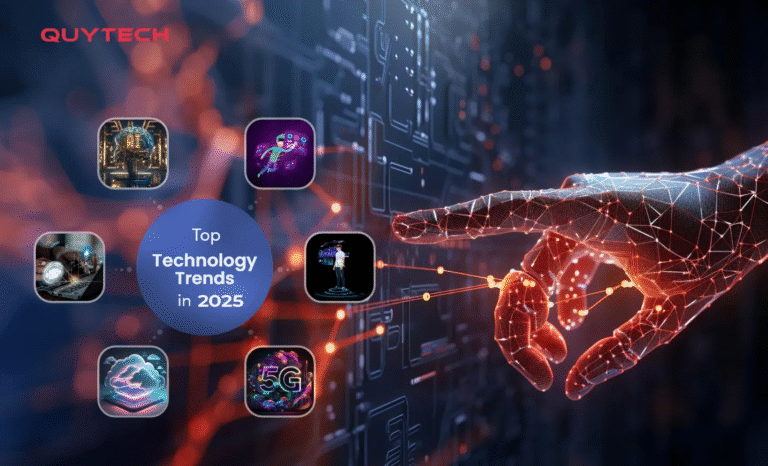How Tech Trends Are Affecting the Job Market
Technology has become a major force shaping the world we live in today. Every day, new innovations change how we work, communicate, and live our lives. One of the biggest areas influenced by technology is the job market. But how exactly are tech trends affecting jobs? Are they creating new opportunities or making some jobs disappear? This article will explore the key ways technology is changing the job market and what it means for workers everywhere.
The Rise of Automation and Artificial Intelligence
One of the most talked-about tech trends is automation and artificial intelligence (AI). Automation means machines or software performing tasks that humans used to do. AI refers to computer systems that can learn and make decisions, sometimes better than humans.
Many industries now use robots and AI to handle repetitive or dangerous tasks. For example, in manufacturing, robots assemble products on production lines. In customer service, AI chatbots respond to common questions quickly and around the clock.
How does this affect jobs?
- Job Displacement: Some jobs, especially those involving routine tasks, are disappearing. Cashiers, assembly line workers, and data entry clerks may find fewer opportunities because machines can do their work faster and more cheaply.
- Job Transformation: Many jobs aren’t disappearing but changing. For instance, a factory worker may now need to oversee and maintain robots rather than assemble parts manually.
- New Job Creation: At the same time, automation and AI create new jobs in programming, robot maintenance, AI training, and data analysis.
Remote Work and Digital Collaboration
The rise of high-speed internet, cloud computing, and collaboration tools like Zoom and Slack have made remote work more common. The COVID-19 pandemic accelerated this trend, proving that many jobs can be done from anywhere.
What does this mean for the job market?
- More Flexibility: Employees enjoy more flexibility to work from home or other locations, improving work-life balance.
- Wider Talent Pool: Employers can hire talent from anywhere in the world, increasing competition but also opportunities for workers in remote or rural areas.
- New Skills Needed: Remote work requires skills like digital communication, time management, and self-motivation.
Gig Economy and Freelancing
Technology platforms such as Uber, Fiverr, and Upwork have popularized the gig economy, where workers take short-term or freelance jobs rather than full-time employment.
How does this impact jobs?
- Increased Opportunities: Many people now have access to flexible work options and can earn money on their own terms.
- Job Insecurity: Gig work often lacks the stability, benefits, and protections of traditional jobs.
- Skill Development: Freelancers must continually learn new skills and market themselves effectively.
The Demand for Tech Skills
As technology advances, the demand for tech-savvy workers grows. Skills in coding, data science, cybersecurity, and cloud computing are highly sought after.
Effects on the job market:
- Higher Salaries: Tech jobs often pay more due to skill shortages.
- Reskilling and Upskilling: Workers in other industries must learn new tech skills to stay relevant.
- Education Shift: Schools and training programs focus more on STEM (science, technology, engineering, and math) education.
Challenges and Concerns
While technology brings many benefits, it also raises concerns for workers and society.
- Job Polarization: High-skill and low-skill jobs grow, but middle-skill jobs decline, increasing income inequality.
- Digital Divide: Not everyone has equal access to technology or training, which can leave some workers behind.
- Privacy and Ethics: AI and automation raise ethical questions about surveillance, bias, and fairness in hiring.
How Workers Can Adapt
To succeed in this changing job market, workers need to be proactive:
- Lifelong Learning: Continuously update skills through online courses, workshops, and certifications.
- Embrace Technology: Learn to work alongside AI and automation tools rather than fear them.
- Develop Soft Skills: Communication, creativity, problem-solving, and emotional intelligence remain crucial.
- Network Digitally: Build professional connections online and stay visible in your industry.
What Employers Can Do
Employers also play a key role in this transition:
- Provide Training: Help employees learn new tech skills and adapt to change.
- Promote Inclusion: Ensure access to technology and opportunities for all workers.
- Balance Automation: Use machines to assist, not completely replace, human workers where possible.
- Focus on Employee Wellbeing: Support mental health and work-life balance, especially with remote and gig work.
The Future of Work
The future of the job market will likely involve even more technology integration. Trends like virtual reality, blockchain, and advanced AI will create new possibilities and challenges.
Workers who stay adaptable and open to learning will thrive. Those who resist change may struggle. Governments, educators, and businesses must work together to create a fair and inclusive job market that benefits everyone.
Frequently Asked Questions (FAQs)
1. Will robots take all the jobs in the future?
No, robots and AI will replace some jobs, especially repetitive ones, but they will also create new jobs and transform existing ones. Humans will still be needed for creativity, critical thinking, and social interaction.
2. How can I prepare for the changing job market?
Focus on lifelong learning, develop digital and soft skills, stay updated on industry trends, and be willing to adapt to new technologies and ways of working.
3. Is remote work here to stay?
Yes, remote work has become an important part of many industries. It offers flexibility and access to a broader talent pool, although some jobs still require physical presence.
4. What are the risks of the gig economy?
While gig work offers flexibility, it often lacks job security, benefits like health insurance, and legal protections. It requires self-discipline and continuous skill development.
5. How can employers support workers through tech changes?
Employers should invest in training, provide resources for reskilling, promote inclusive hiring, and balance automation with human-centered work environments.






